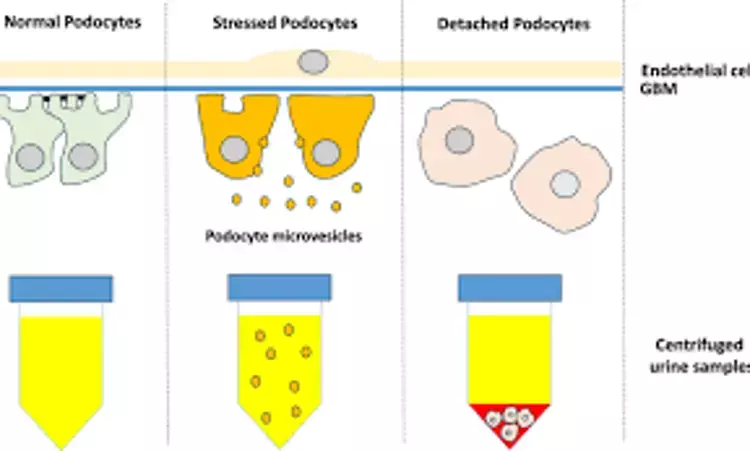- Home
- Medical news & Guidelines
- Anesthesiology
- Cardiology and CTVS
- Critical Care
- Dentistry
- Dermatology
- Diabetes and Endocrinology
- ENT
- Gastroenterology
- Medicine
- Nephrology
- Neurology
- Obstretics-Gynaecology
- Oncology
- Ophthalmology
- Orthopaedics
- Pediatrics-Neonatology
- Psychiatry
- Pulmonology
- Radiology
- Surgery
- Urology
- Laboratory Medicine
- Diet
- Nursing
- Paramedical
- Physiotherapy
- Health news
- Fact Check
- Bone Health Fact Check
- Brain Health Fact Check
- Cancer Related Fact Check
- Child Care Fact Check
- Dental and oral health fact check
- Diabetes and metabolic health fact check
- Diet and Nutrition Fact Check
- Eye and ENT Care Fact Check
- Fitness fact check
- Gut health fact check
- Heart health fact check
- Kidney health fact check
- Medical education fact check
- Men's health fact check
- Respiratory fact check
- Skin and hair care fact check
- Vaccine and Immunization fact check
- Women's health fact check
- AYUSH
- State News
- Andaman and Nicobar Islands
- Andhra Pradesh
- Arunachal Pradesh
- Assam
- Bihar
- Chandigarh
- Chattisgarh
- Dadra and Nagar Haveli
- Daman and Diu
- Delhi
- Goa
- Gujarat
- Haryana
- Himachal Pradesh
- Jammu & Kashmir
- Jharkhand
- Karnataka
- Kerala
- Ladakh
- Lakshadweep
- Madhya Pradesh
- Maharashtra
- Manipur
- Meghalaya
- Mizoram
- Nagaland
- Odisha
- Puducherry
- Punjab
- Rajasthan
- Sikkim
- Tamil Nadu
- Telangana
- Tripura
- Uttar Pradesh
- Uttrakhand
- West Bengal
- Medical Education
- Industry
Urinary sediment messenger RNA potent biomarker of IgA nephropathy, claims study

Urinary sediment messenger RNA potent biomarker of IgA nephropathy, claims study published in the BMC Nephrology.
The quantification of mRNA expression in urinary sediments is a reliable biomarker for various diseases. However, few studies have investigated the clinical relevance of urinary mRNA levels in IgA nephropathy (IgAN).
Thus, we investigated the expression of urinary mRNAs and their clinical significance in IgAN. Overall, 200 patients with biopsy-proven IgAN, 48 disease controls, and 76 healthy controls were enrolled. We identified the differential expression of mRNAs in renal tissue between patients with IgAN and normal subjects using the Gene Expression Omnibus dataset and selected candidate mRNAs. mRNA expression in the urinary sediment was measured using quantitative real-time polymerase chain reaction.
Associations between urinary mRNA levels and clinicopathological parameters were analyzed and the predictive value of mRNAs for disease progression was evaluated. Results: The urinary expression of CCL2, CD14, DNMT1, FKBP5, Nephrin, and IL-6 was significantly upregulated in patients with IgAN compared with healthy controls. C3, FLOT1, and Podocin levels were significantly correlated with renal function, where C3, FLOT1, and TfR levels were significantly correlated with urinary protein excretion.
During follow-up, 26 (13.0%) patients with IgAN experienced disease progression, defined as a greater than 50% reduction in the estimated glomerular filtration rate or progression to end-stage renal disease. Urinary mRNA levels of FLOT1 (HR 3.706, 95% CI 1.373–10.005, P = 0.010) were independently associated with an increased risk of disease progression. The results suggest that urinary sediment mRNAs are a useful biomarker in IgAN patients. Further studies with larger sample sizes and longer follow-up durations are required.
Reference:
Kim, J.S., Kim, G.W., Hwang, H.S. et al. Urinary sediment mRNA as a potent biomarker of IgA nephropathy. BMC Nephrol 25, 401 (2024). https://doi.org/10.1186/s12882-024-03696-7
Dr. Shravani Dali has completed her BDS from Pravara institute of medical sciences, loni. Following which she extensively worked in the healthcare sector for 2+ years. She has been actively involved in writing blogs in field of health and wellness. Currently she is pursuing her Masters of public health-health administration from Tata institute of social sciences. She can be contacted at editorial@medicaldialogues.in.
Dr Kamal Kant Kohli-MBBS, DTCD- a chest specialist with more than 30 years of practice and a flair for writing clinical articles, Dr Kamal Kant Kohli joined Medical Dialogues as a Chief Editor of Medical News. Besides writing articles, as an editor, he proofreads and verifies all the medical content published on Medical Dialogues including those coming from journals, studies,medical conferences,guidelines etc. Email: drkohli@medicaldialogues.in. Contact no. 011-43720751


